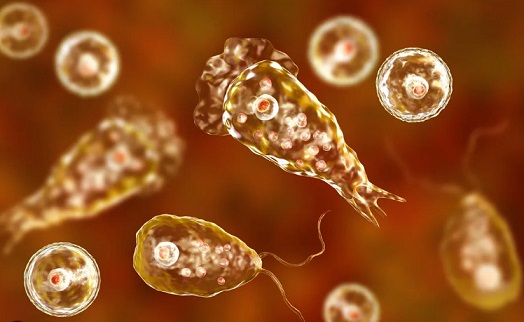Nikhil Prasad Fact checked by:Thailand Medical News Team Sep 19, 2025 5 months, 4 days, 23 hours, 50 minutes ago
Medical News: Kerala Faces Sharp Rise in Rare Brain Amoeba Cases
In the southern Indian state of Kerala, health officials are sounding the alarm as infections from a rare but deadly “brain-eating” amoeba have more than doubled this year. Authorities report 69 confirmed infections and 19 deaths from the amoeba Naegleria fowleri since January 2025. Last year, by comparison, there were 36 cases and 9 deaths. Among the recent victims is a baby only three months old. This
Medical News report describes how these numbers mark an unexpected jump.
 Rising Alarm in Kerala over Brain Eating Amoeba Surge
What Is Naegleria fowleri and Why It’s So Dangerous
Rising Alarm in Kerala over Brain Eating Amoeba Surge
What Is Naegleria fowleri and Why It’s So Dangerous
This amoeba lives in warm freshwater bodies—lakes, rivers, even wells—and it enters the human body through the nose, not by drinking water. Once inside, it can travel to the brain and cause primary amebic meningoencephalitis (PAM), an infection that destroys brain tissue. Symptoms often begin like a common fever and headache, but quickly worsen: vomiting, seizures, changes in consciousness, hallucinations, coma. Infections are very rare but almost always fatal—over 95 percent of those who develop the disease die.
Where and How the Cases Are Spreading
What is particularly worrying this year is that, unlike in previous years, cases aren’t clustered around a single river, lake, or public bathing area. Health Minister Veena George has said that infections are appearing in many isolated locations across Kerala. The state government is responding by chlorinating wells, water tanks, and public bathing areas to try to stop the amoeba spread.
Study Findings and Key Data
-
Total cases and deaths: 69 cases, 19 deaths in 2025 so far, up from 36 cases and 9 deaths last year.
-
Geographical spread: New infections are coming from widely scattered places, not just known contaminated water sources.
-
Age vulnerability: Even very young individuals are affected—recent death of a three-month-old infant.
-
Government action: Large-scale testing, water supply disinfection, and surveillance across the state.
Why This Matters
These infections may still be rare, but because the disease progresses so quickly and almost always ends in death, any increase in numbers is serious. Widespread cases make it harder for health workers to track and contain the amoeba. The spread across many localities suggests that contamination control and public awareness must be improved urgently.
Conclusion
The rising number of Naegleria fowleri cases in Kerala, the scatter of infections across many places, and fatalities including infants show this is not a localized issue but a growing public health threat. Processing these trends, officials must intensify water safety, early detection, and community
education—because once the amoeba invades the brain, chances of survival are nearly zero and delay of even hours can mean the difference between life and death.
For the latest Outbreak News, keep on logging to Thailand
Medical News.
Read Also:
https://www.thailandmedical.news/news/latvia-sees-alarming-rise-in-covid-19-cases-and-deaths
https://www.thailandmedical.news/news/covid-19-positivity-rates-surge-to-10-8-percent-in-america-with-0-8-percent-of-deaths-now-attributable-to-covid-19
https://www.thailandmedical.news/news/covid-19-rising-again-in-canada-as-end-of-summer-brings-risks
